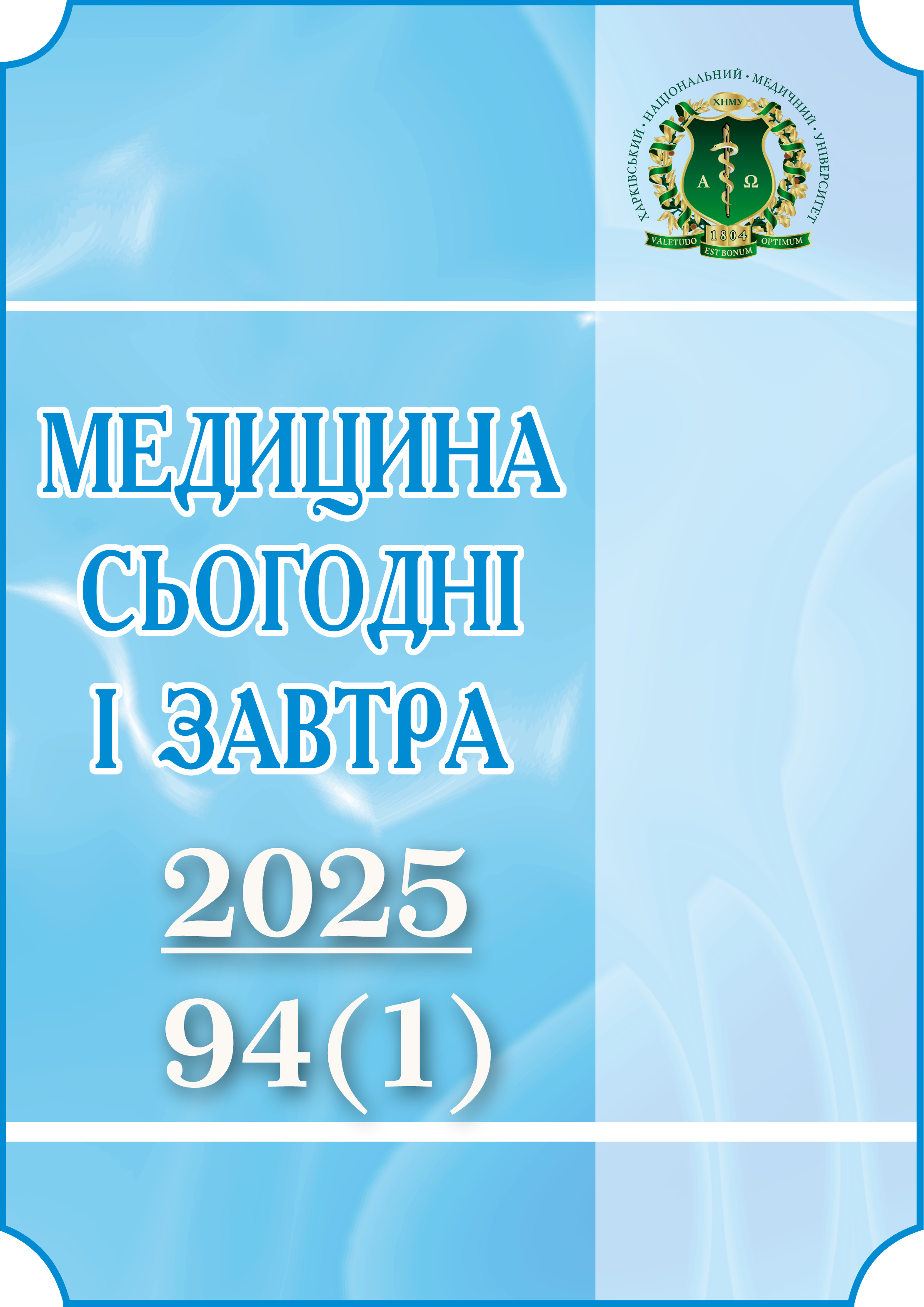Abstract
The study aimed to explore the phenomenology of war-related stress disorders in combatants undergoing inpatient treatment in different hospital departments. A total of 242 Ukrainian Armed Forces servicemen aged 25–45 years were examined at the Sumy Regional Clinical Veterans’ Hospital. The participants were divided into three groups according to the profile of the department: internal medicine (Group I, n=86), neurology (Group II, n=110), and surgery (Group III, n=46). Structured clinical interviews were performed; data processing involved descriptive and correlational analysis (SPSS 29.0.2). Across all groups, the most prevalent symptoms included sleep disturbances, anxiety, emotional exhaustion, low mood, cognitive difficulties, and tension. The internal medicine group demonstrated the most integrated symptom structure, with strong correlations between anxiety, insomnia, avoidance behavior, and flashback reactions, reflecting a chronic psychosomatic symptom complex. In the neurology group, symptoms were less interrelated but showed strong connections between depressive mood, loss of interest, cognitive impairments, and emotional withdrawal, likely shaped by neurocognitive and organic factors. In the surgical group, high correlations were found between avoidance of trauma-related memories, intrusive recollections, irritability, and hyperarousal, indicating acute psychological stress responses. Notably, suicidal ideation in all groups exhibited weak correlations with other psychopathological features, highlighting its clinical autonomy and the need for dedicated suicide risk assessment regardless of the general symptom profile. These findings underscore the importance of department-specific, differentiated psychological support protocols tailored to the clinical characteristics of war trauma survivors, with an emphasis on screening for suicidal risk as a separate diagnostic target.
Keywords: military personnel, psychopathological symptoms, combat trauma.
References
Chernenko I. Peculiarities of rehabilitation of patients after combat craniocerebral trauma. Psychiatry, Neurology and Medical Psychology. 2022;20:19-24. DOI: 10.26565/2312-5675-2022-20-03. [In Ukrainian].
Marcolini S, Rojczyk P, Seitz-Holland J, Koerte IK, Alosco ML, Bouix S; Department of Defense Alzheimer’s Disease Neuroimaging Initiative. Posttraumatic Stress and Traumatic Brain Injury: Cognition, Behavior, and Neuroimaging Markers in Vietnam Veterans. J Alzheimers Dis. 2023;95(4):1427-48. DOI: 10.3233/JAD-221304. PMID: 37694363.
Druz O, Chernenko I. Basic psychometric markers of post-traumatic stress disorder in combatants. [Ukrainian Bulletin of Psychoneurology]. 2020;28(2(103)):26-9. DOI: 10.36927/2079-0325-v28-is2-2020-5. [In Ukrainian].
Romanuk O. Posttraumatic stress disorder as a consequence of the influence of combat stress on military servants. Bulletin of the National Defence University of Ukraine. 2021;58(5):161-5. DOI: 10.33099/2617-6858-2020-58-5-161-165. [In Ukrainian].
Malyna O. Features of psychological assistance to military personnel with combat mental trauma. In: Novakovska E, Mizolek Y, Shevchenko NF, Tkalych MH, Huba NO (ed.). Psychological Patterns of Social Processes and Personality Development in Modern Society. 2023;283-97. DOI 10.30525/978-9934-26-362-0-16. [In Ukrainian].
Mohylnyk A, Zhyvotovska L, Tarasenko K, Boiko D, Sonnik Y, Arkhipovets O. Post-traumatic stress disorder as pressing issues of our time. Actual Problems of the Modern Medicine: Bulletin of Ukrainian Medical Stomatological Academy. 2023;23(3):203-12. DOI: 10.31718/2077-1096.23.3.203. [In Ukrainian].
Epstein A, Lim R, Johannigman J, Fox CJ, Inaba K, Vercruysse GA, Putting Medical Boots on the Ground: Lessons from the War in Ukraine and Applications for Future Conflict with Near-Peer Adversaries. J Am Coll Surg. 2023;1(237(2)):364-73. DOI: 10.1097/XCS.0000000000000707. PMID: 37459197.

This work is licensed under a Creative Commons Attribution-NonCommercial-ShareAlike 4.0 International License.

